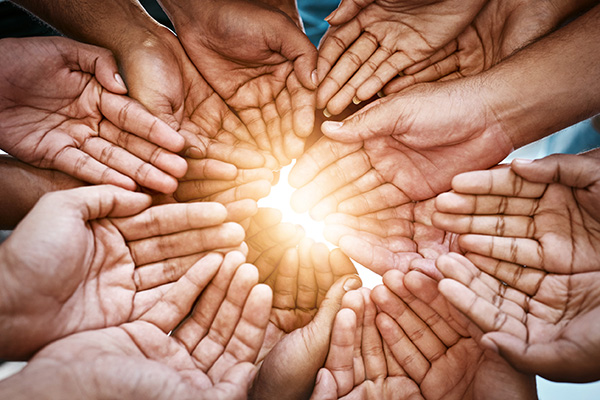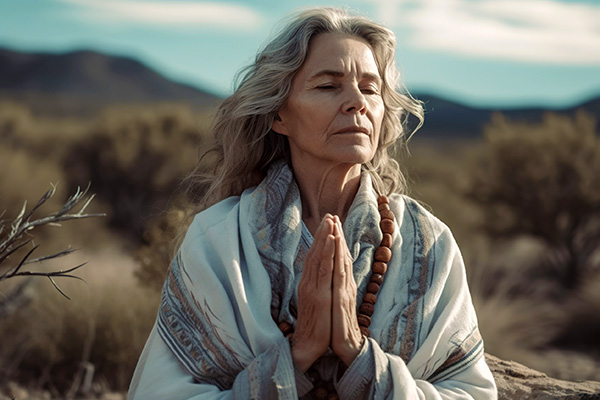religion
In The Grace Of Divine Time
I usually see them poised in stillness upon the bare branches of the winter trees. But today, most of my sightings were of them circling in flight overhead, crossing back and forth over the road.
Sometimes they appeared to be pursuing their prey, other times leading their young, or simply enjoying the freedom of gliding through the sky beneath the beautiful morning sun. This occurred in several places along my journey, spanning a range of miles beyond the one roost and eagle family I’ve been witnessing.
Before, during, and after my way was bedazzled with this abundance of bald eagle beauty, my thoughts had been steeped in the topic of time. I sensed the eagles crossed my path to affirm and guide me in my contemplation of eternal time.
I also sensed they came as signs of a shift in my life. They were reminding me that what has been waiting in my life – energy that has been paused, stuck or still, resting, gathering, or incubating – is beginning to move on the horizon of visibility, and gradually gaining momentum.
When I arrived home, waiting in my mailbox was a pamphlet with the printed words: The Times Are Racing. Well, message received loud and clear! It’s time to express my appreciation of time.
Rediscovering Prayer As A Personal Practice
 “Prayer” can be a complicated concept for some people, especially when it carries associations with dogma or specific religious traditions.
“Prayer” can be a complicated concept for some people, especially when it carries associations with dogma or specific religious traditions.
On a spiritual path, not everyone relates to a higher power in the same way, and we all experience the sacred or the divine through diverse and deeply personal lenses.
However, no matter how we personally view it, prayer can hold a very meaningful place in any spiritual practice.
As my own spiritual awareness deepened, I came to see God not as a distant figure watching over the world, but as a vast creative presence, an energy that flows through all life. Some connect with this presence as “the universe,” others as their higher self, their guides, or a field of eternal love and light.
I have moved through many of these perspectives myself, and each has offered me unique insights. Over time, returning to the broader concept of God reopened a space of comfort and peace within me, especially through the practice of prayer.
When I was a child, prayer felt natural. It brought reassurance and warmth. Reconnecting with it later in life has brought that same sense of grounding and clarity.
Prayer can be understood as a conversation with God, Source, Spirit, the Divine, with one’s soul, or with the deeper wisdom that resides within and around us. Continue reading
Spiritual Awakening ‘Turns On The Light’
 What exactly is a spiritual awakening, and is there a way you can tell if you are having one? Here are some ways to be aware of what is happening to you.
What exactly is a spiritual awakening, and is there a way you can tell if you are having one? Here are some ways to be aware of what is happening to you.
The first sign is usually when you are no longer living in a ‘dream world,’ where you used to see everything through your human ego and you were overly focused on the future and your past.
This is a clear sign that you are becoming more spiritually aware. You have a greater awareness of your individual self and the connection between that and everything else. Things start to come into better focus in your life and make more sense.
When you closely examine various religions and faith traditions, there is usually a common thread that describes this state of heightened awareness as nirvana, enlightenment, or awakening.
This new consciousness happens when you stop being the observer, and instead ask yourself, who is observing?
Many people go through life on ‘autopilot,’ because that is what they were taught, or they simply fell into a routine without giving much thought to who they really are, or what they truly need or desire to make their life meaningful.
Asking such questions about yourself is important for your personal growth and self-realization. It is ‘turning the light on’ so to speak. The first step in growth is always the awareness of the present moment followed by an impulse to change something. Continue reading
The Spiritual Power Of The Words You Speak
 Have you ever stopped to truly consider the words you speak? Most of us talk all day, every day, without realizing the impact of each syllable we send out into the world.
Have you ever stopped to truly consider the words you speak? Most of us talk all day, every day, without realizing the impact of each syllable we send out into the world.
Words are much more than just communication sounds. They’re vibrations, frequencies, and intentions. Whether spoken softly, shouted out loud, or whispered quietly to yourself, every word carries mystical energy.
In many spiritual traditions, the spoken word is seen as a powerful metaphysical force or divine power. It is a force of creation and transformation.
From magical incantations to sacred ceremonies, words have long been used to shape everyday reality, influence the world and improve life.
The earliest recorded reference to the power of speech dates back to ancient Mesopotamia. In the city of Uruk, magical incantations were found carved onto clay tablets dating back to approximately the 5th century BCE. These spoken spells were used for protection, healing, and influencing others, revealing a deep understanding of the energetic and powerful nature of speech as early as 2,500 years ago.
Around the same time, the ancient Egyptians believed in the concept of heka, which is often translated today as “magic” but really means “divine creative power.” They believed the gods used heka to create the world, and that humans could access this same creative power through sacred words called hekau.
Walking In Faith Through Life’s Ups And Downs
 Most of us go through life like it is a roller coaster ride. We have our ups and downs, our good days and our hard ones. Sometimes we catch ourselves saying things we probably shouldn’t, or reaching for that chocolate chip cookie even though we promised ourselves we wouldn’t.
Most of us go through life like it is a roller coaster ride. We have our ups and downs, our good days and our hard ones. Sometimes we catch ourselves saying things we probably shouldn’t, or reaching for that chocolate chip cookie even though we promised ourselves we wouldn’t.
Temptation is everywhere. That little voice in our head tells us to go for it, even when our gut or intuition says it’s not a good idea. It can leave us feeling torn and unsure of what the right choice really is.
And then, on top of all our personal ups and downs, there’s everything going on in the world around us. Lately, it feels like we’re living through constant upheaval: wars, natural disasters, political division, economic stress, runaway technology, and so much uncertainty about the future. All of it adds to the pressure we already carry.
It’s no wonder we feel overwhelmed or tempted to numb ourselves with distractions. When everything feels unstable, it’s easy to lose our sense of direction or forget the spiritual tools that keep us grounded.
That’s why staying connected to faith, however that looks for you, is more important than ever. It becomes an anchor in the storm, something solid to hold onto when everything else feels like it’s shifting.
Faith helps us pause, speak with care, and make better choices. It gives us insight and direction. When we turn away from it or get stuck in negative thinking, that’s usually when life starts feeling harder and more complicated.


